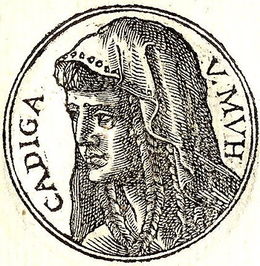Template:Pictorial-Islam-options: Difference between revisions
| [checked revision] | [checked revision] |
mNo edit summary |
mNo edit summary |
||
| Line 1: | Line 1: | ||
<noinclude>Also see: [[Template:Pictorial-Islam]]</noinclude><!-- HELP NOTES: Each option tag handles one random story --><choose> | <noinclude>Also see: [[Template:Pictorial-Islam]]</noinclude><!-- HELP NOTES: Each option tag handles one random story --><choose> | ||
<option weight="1">{{Pictorial-Islam|1=Qur'an and the Big Bang|2=[[File:Galaxy.jpg|250px|link=Quran and the Big Bang]]|3=Apologists claim the “Big Bang” is described by the Qur’an. However on closer examination, these claims of miraculous scientific information in the Qur’an are shown to be in error. The Qur’an is silent on the “big bang” because it clearly has no awareness whatsoever of a universe that pre-existed the creation of the planet Earth, or extended outwards into infinite space. It has no understanding of galaxies, or clusters of galaxies, or quasars or pulsars or any of the other things that could have easily been mentioned by Allah and left us no room for quibbling. ([[Quran and the Big Bang|''read more'']])}}</option> | |||
Revision as of 11:42, 29 January 2014
Also see: Template:Pictorial-Islam
|
